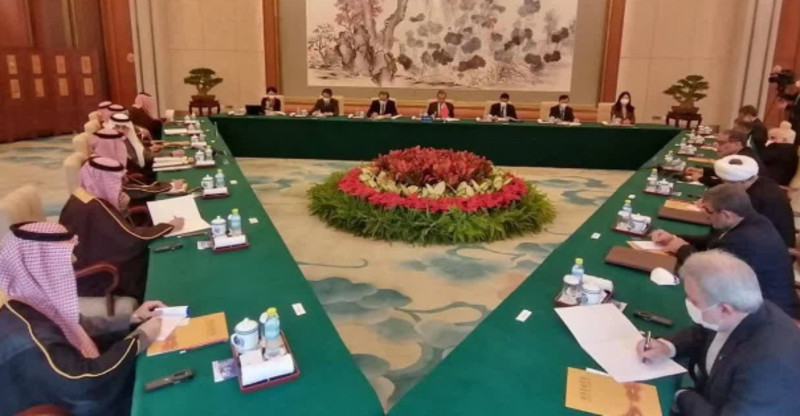After decades of the United States taking a dominant role in Middle Eastern geopolitics, China wants a turn to play power broker.
Driving the news: Beijing will host a summit of Gulf state monarchs and Iranian leaders in China later this year as part of an effort to restore relations between Iran and Saudi Arabia, according to The Wall Street Journal.
Why it matters: China is trying to reshuffle the diplomatic deck in the Middle East, bringing together two bitter rivals and creating the outlines of a regional bloc that could lean towards Beijing rather than Washington.
- The predominantly Sunni Saudi Arabia and Shia Iran severed diplomatic relations in 2016, and have battled each other through proxy wars in Syria, Iraq, Lebanon, and Yemen. This deal could put an end to that.
Why it’s happening: Iran, Saudi Arabia, and China are all motivated right now to come to an agreement.
- Iran is in the grip of a currency crisis and hopes to see economic benefits from normalizing relations with its neighbours, while Saudi Arabia has struggled to defeat Iranian-backed rebels in Yemen that threaten its all-important energy infrastructure.
- China, meanwhile, spies a chance to expand its influence in a key energy-exporting region it depends upon to fuel its economy.
Yes, but: While Middle Eastern politics is famously breezy and congenial, there’s no guarantee that China will be successful in mediating a lasting peace between Iran and Saudi Arabia, let alone set itself up as a key power in the region.
